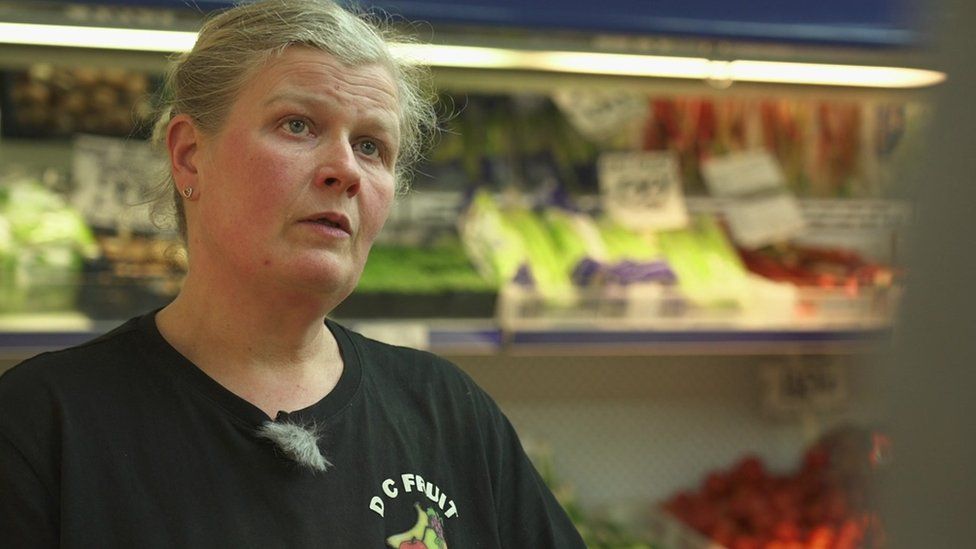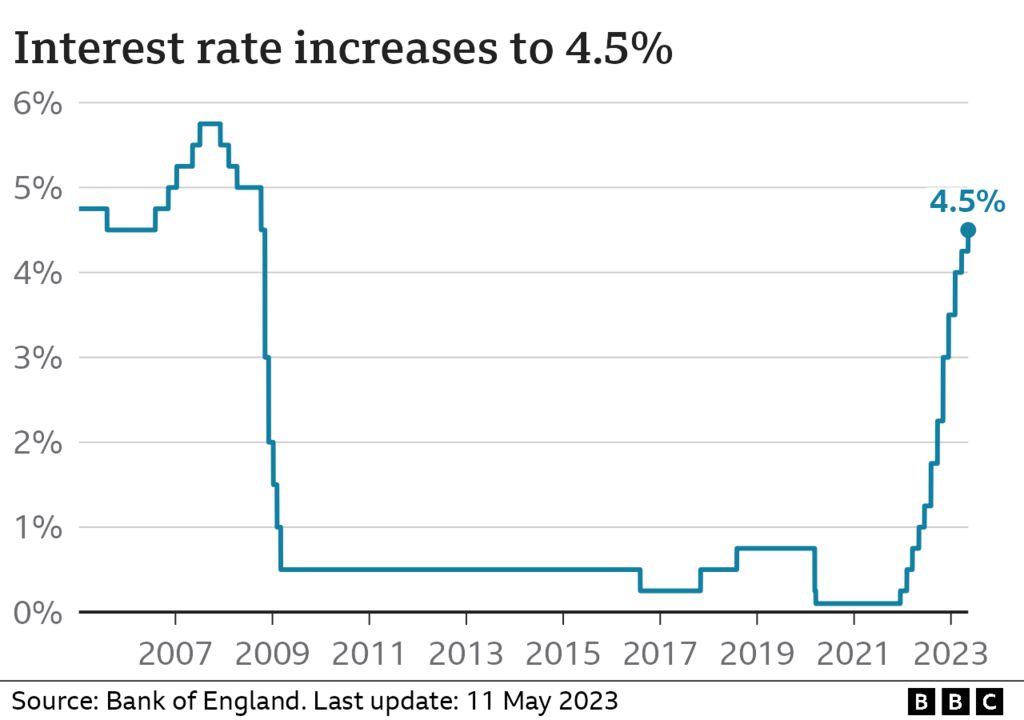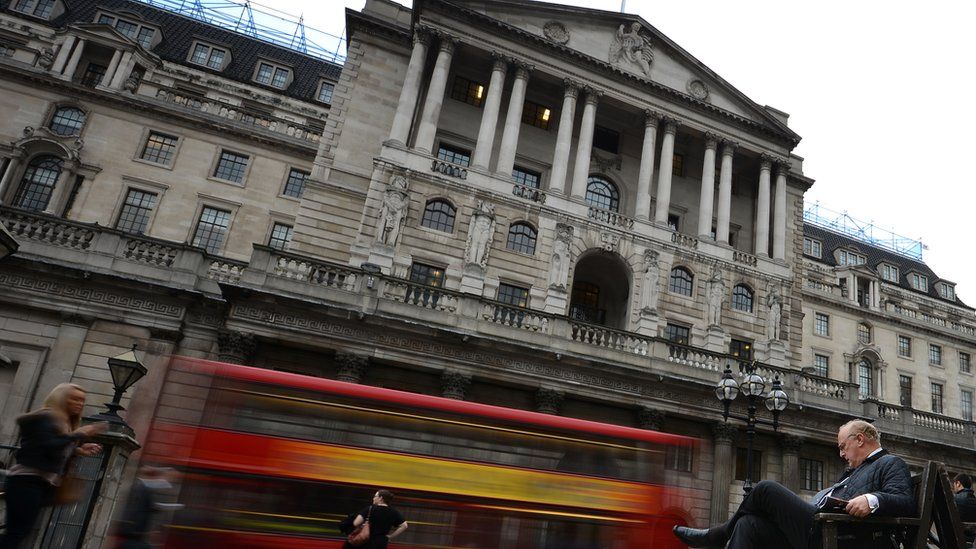
Price rises will not slow as quickly as expected due to soaring food costs, the Bank of England has warned.
The forecast came as it increased interest rates to 4.5% from 4.25% in an attempt to slow soaring price rises.
The Bank said inflation would “fall sharply in April” but not as far or as fast as it previously thought.
But it was more optimistic on how quickly the UK would grow, saying it would avoid recession and raising its forecasts by the most in 26 years.
The change in outlook for the economy contrasts sharply with the Bank’s forecast six months ago when it said the UK would enter the longest recession on record.
Bank of England governor Andrew Bailey says there will now be “modest but positive growth”.
When the effects of strikes and the extra Bank Holiday for King Charles’ Coronation are stripped out, the economy will have grown by 0.2% in the first three months of the year as well as between April and June, the Bank predicts.
However, inflation – the rate at which prices rise – is expected to take longer to ease, despite the Bank raising interest rates 12 times in a row since December 2021 to the highest level in almost 15 years.
Putting up interest rates can mean people are more likely to save money and less likely to borrow it.
In theory, this means they have less money to spend so will buy fewer things, which should help stop prices rising as quickly. It also makes it harder for firms to borrow money and expand.
The increase in interest rates will mean higher mortgage and loan payments for some, but could benefit savers.
Inflation is now expected to drop to 5% by the end of this year, above the 4% previously predicted. But that is still more than twice the Bank’s target of 2%.
Prices are currently rising at an annual rate of 10.1%, driven by soaring food costs.
“We are acutely aware of how difficult this rise in food prices is for people and especially for those people on lower incomes. We do see that food price inflation will start to slow,” Mr Bailey said.
A key pledge by the Conservative government has been to halve the rate of inflation by the end of the year.
Chancellor Jeremy Hunt said: “Although it is good news that the Bank of England is no longer forecasting recession, today’s interest rate rise will obviously be very disappointing for families with mortgages.
“But unless we tackle rising prices, the cost of living crisis will only carry on.”
Falling energy prices as well as measures to help businesses and households announced in the Budget last month have led the Bank to change its forecasts.
The Bank blamed Russia’s war on Ukraine for stubbornly high food prices as well as supply chain issues in Europe.
Earlier this year, some supermarkets had to introduce limits for shoppers on some fresh goods after hot weather in Europe and North Africa affected levels of produce.

Helen Parry, who works for D.C Fruit and Veg in Stoke-on-Trent, says she has seen changes in her customers’ choices and how they avoid treating themselves later in the month.
“You can normally tell the first week where people have been paid,” she says.
“They come, they do their shopping, they get what they need, and as the month goes on towards when their next payday is, it slows down a little bit.
“They’re coming and perhaps not treating themselves to maybe the extra punnet of strawberries or the extra bowl of fruit that they might want.”
The Bank said that the impact of all the interest rate rises had yet to be fully felt by Britons, in particular those people who have a fixed-rate mortgage.
Around 85% of all mortgages are fixed-rate, according to the Bank of England, and around 1.3 million households are expected to reach the end of their deals this year.
The Bank estimates that people looking to re-mortgage this year could face a £200 hike in monthly payments based on current rates.


What are your questions on the latest news on inflation rates? How will you be affected? Get in touch by emailing haveyoursay@bbc.co.uk.
Please include a contact number if you are willing to speak to a BBC journalist. You can also get in touch in the following ways:
- WhatsApp: +44 7756 165803
- Tweet: @BBC_HaveYourSay
- Upload pictures or video
- Please read our terms & conditions and privacy policy
If you are reading this page and can’t see the form you will need to visit the mobile version of the BBC website to submit your question or comment or you can email us at HaveYourSay@bbc.co.uk. Please include your name, age and location with any submission.
Related Topics
-
-
12 minutes ago

-


